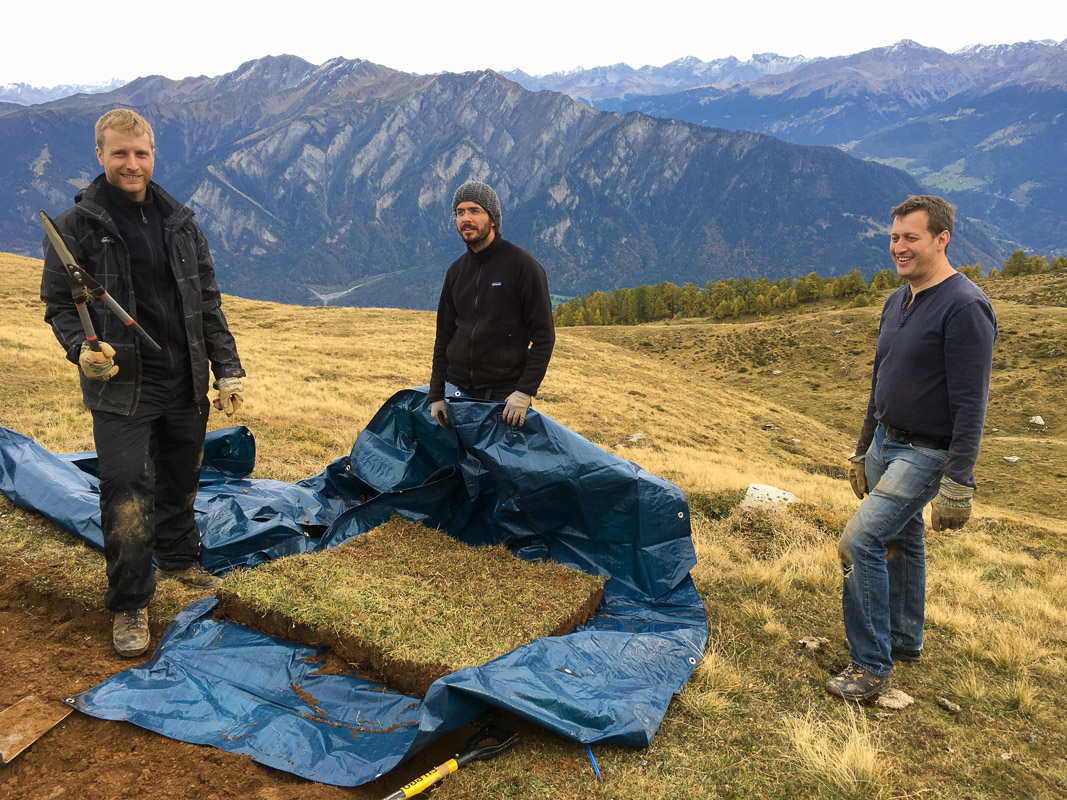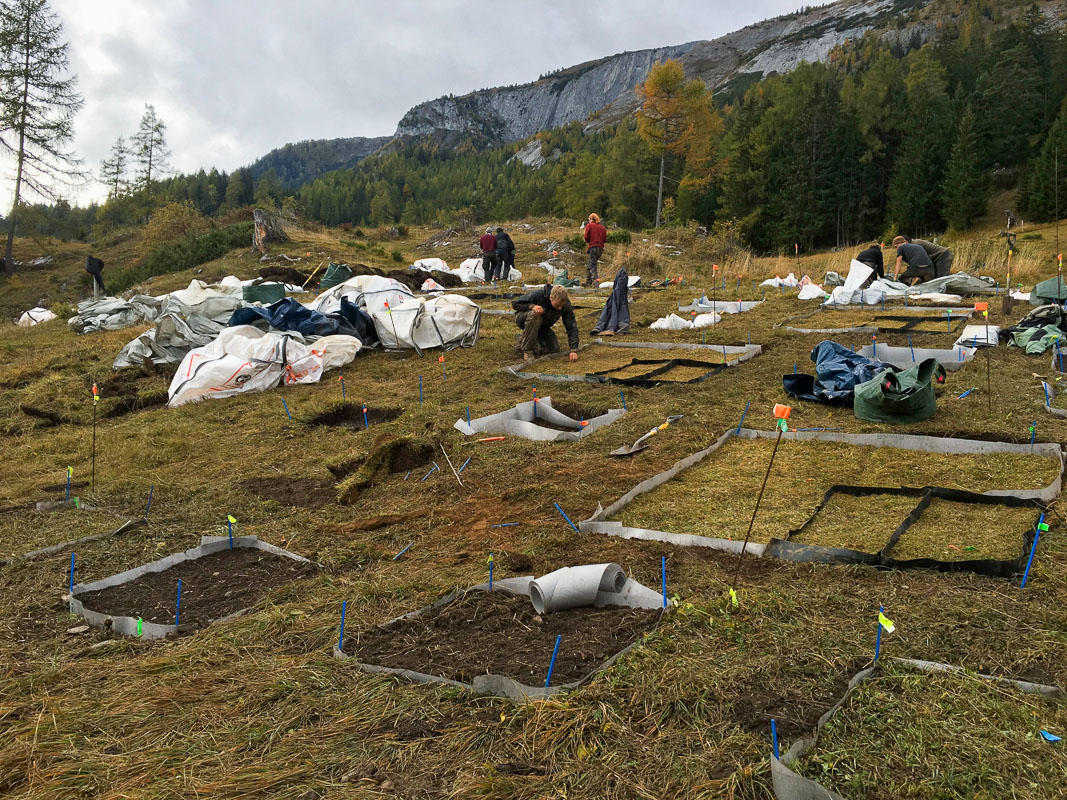Calanda
Timescales of Changing Species Interactions under Warming Climate
Past research has shown that climate can directly affect species’ demographic performance by altering their eco-physiology and phenology, but can also indirectly affect their performance by changing their interactions with competitors, consumers, and mutualists. Whether the arrival of new competitors, consumers, and mutualists will be so fast as to negate the effects of changing interactions with current community members has important implications for the magnitude of climate change impacts on communities in the near term.
Here we propose the integration of large-scale field experiments warming alpine plant communities with mathematical models of dispersal and species-based and trait-based interactions. To test how warming changes interactions between plant species and how fast these changes affect the community structure, alpine meadow communities will be transplanted to warmer sites downslope. Individual-based models will be used to project the nature and timescale of changing species abundances.
The Calanda project is a collaboration with the plant ecology group of Jake Alexander. Please also have a look at their projects on this site: Calanda experiment - Plant Ecology
Publications
Descombes et al.: Uneven rate of plant turnover along elevation in grasslands. Alpine Botany, 2016, doi: external page 10.1007/s00035-016-0173-7


